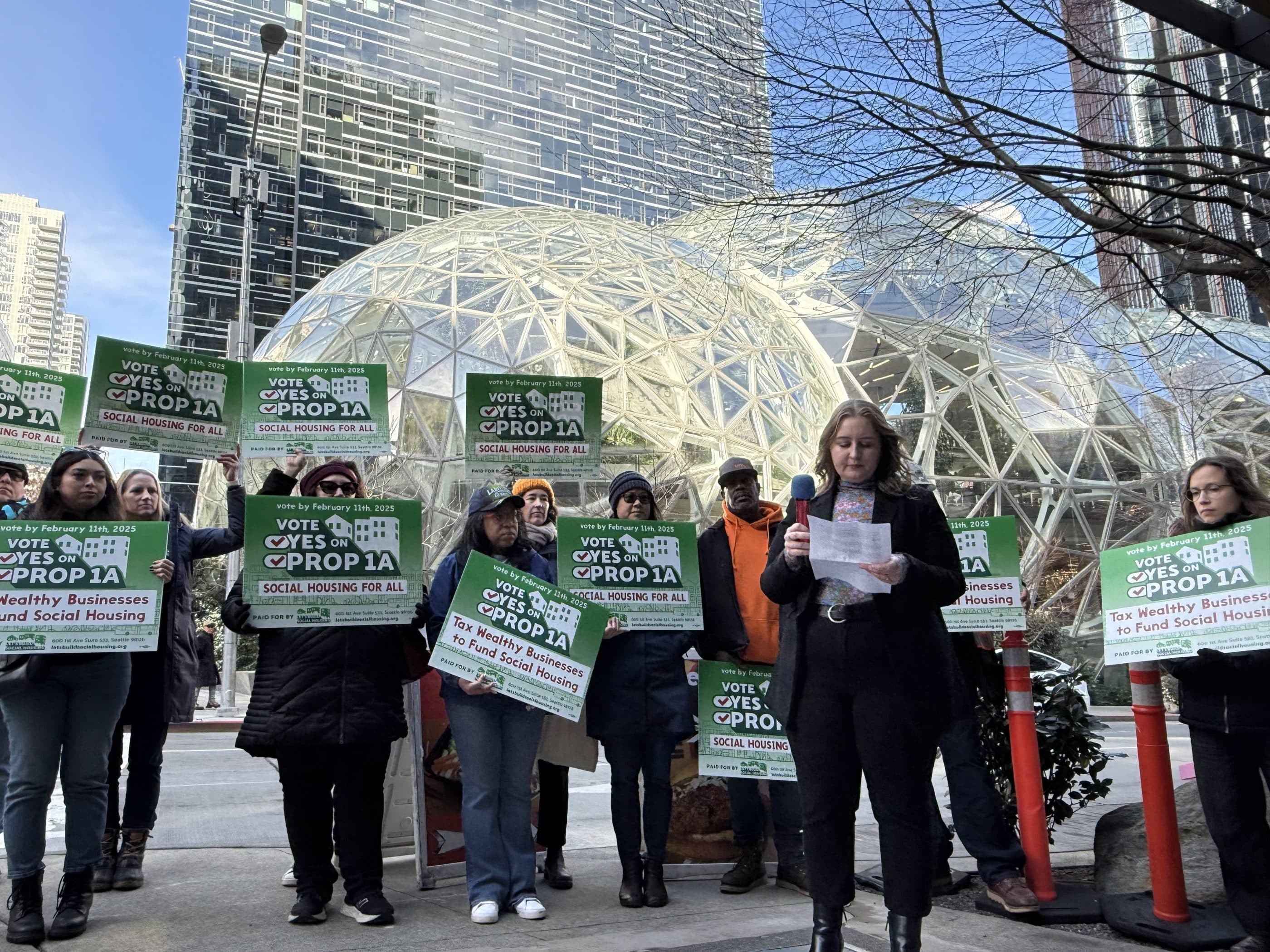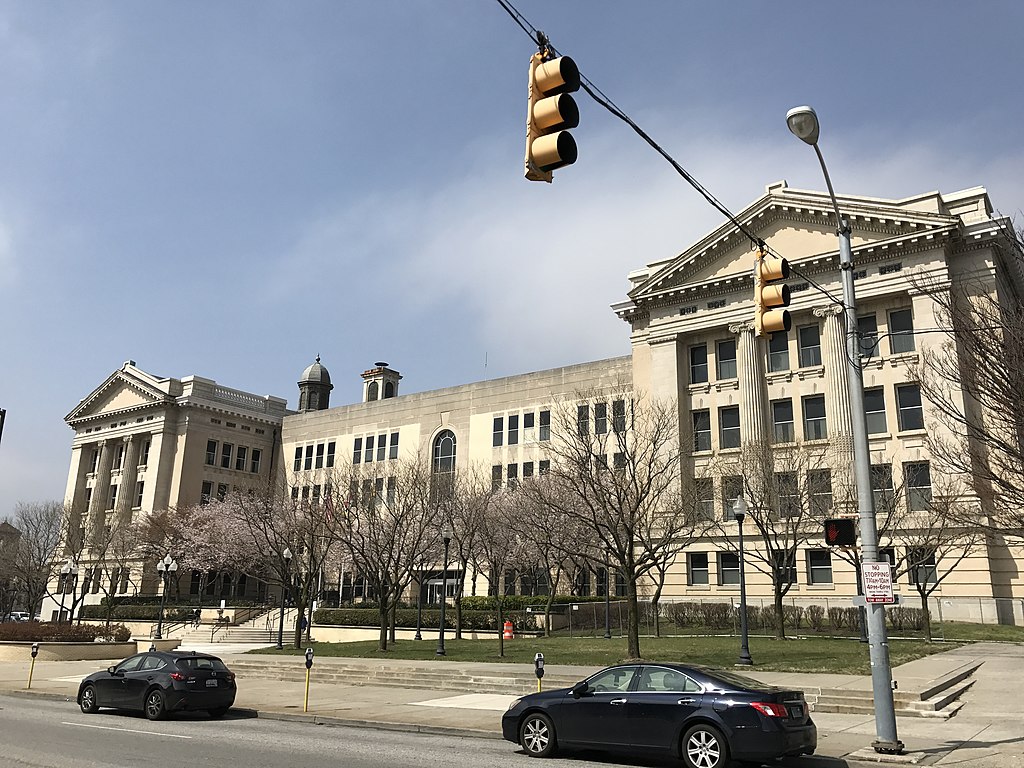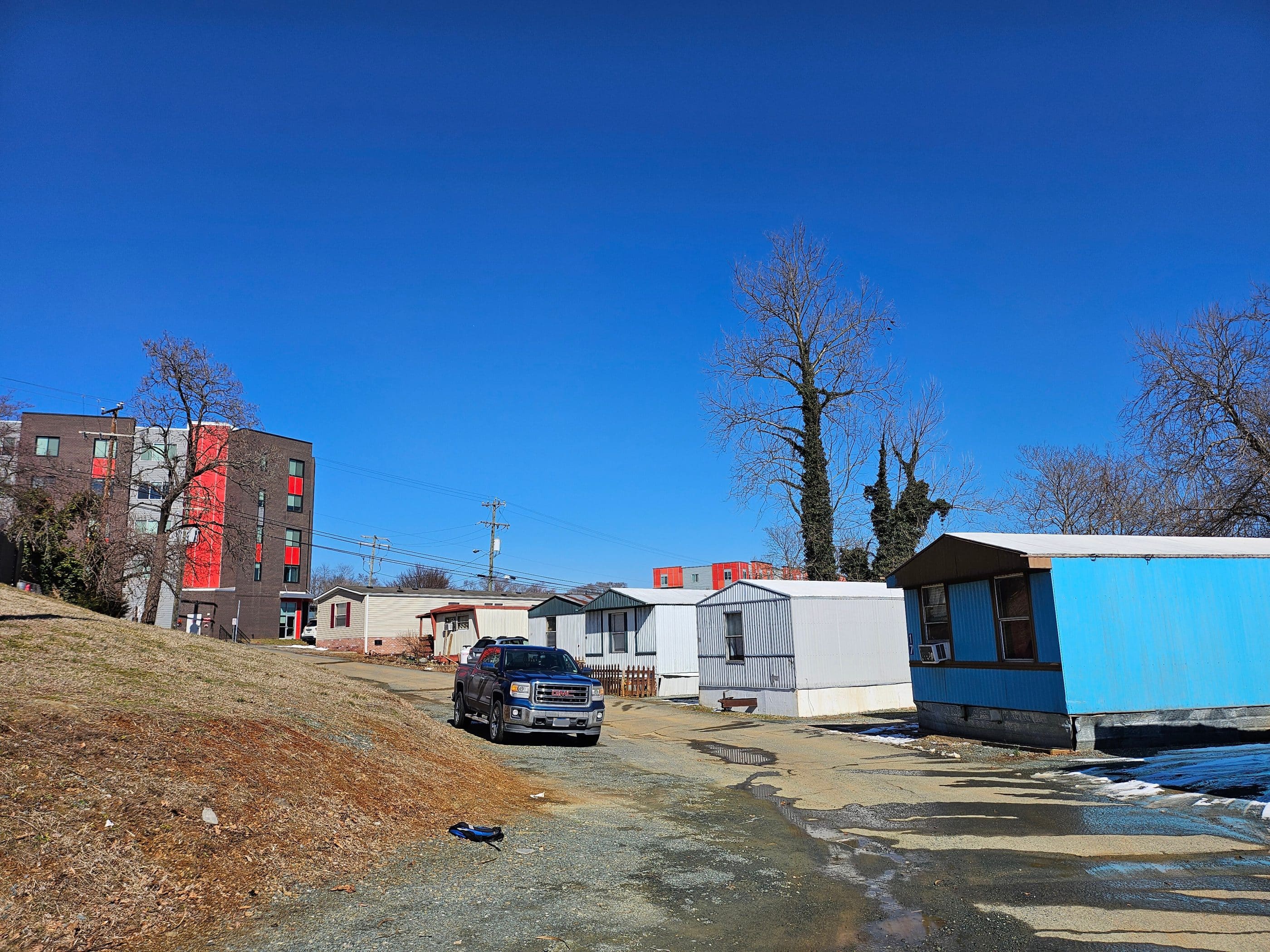In the days before a recent ballot referendum in Seattle that would determine the future of social housing in the city, large tech companies spent big. Amazon and Microsoft, both of which are headquartered in the Seattle metropolitan area, each donated $100,000, and opponents of a tax to fund social housing spent a combined $780,000 in the lead-up to the Feb. 11 vote. Despite this, the vote on a corporate tax to fund the city’s social housing authority won big, with 63 percent of voters supporting it.
In 2023, voters had already resoundingly approved the social housing authority, agreeing that a new entity would be created to acquire and construct mixed-income housing and keep it permanently affordable and under the city’s ownership.
But this February, voters were asked to return to the polls to determine how to fund the authority—or whether it would be funded at all. The first question on the ballot asked if voters approved of funding the new authority using payroll taxes. Next, voters had to choose whether they wanted a new 5 percent payroll tax on individual compensation above $1,000,000, paid by companies, or to use an existing payroll tax that mostly funds affordable housing. The new tax could bring in $52 million of funding each year for social housing. The second option would appropriate $10 million a year for five years that had already been set aside.
The city’s big tech companies had no interest in paying a new tax. In addition to contributions from Amazon and Microsoft, Seattle’s Chamber of Commerce donated $40,000 and T-Mobile donated $20,000 to derail an additional tax on companies.
But according to Tiffani McCoy of House Our Neighbors, a Seattle nonprofit that has been one of the lead supporters of the social housing authority, the influx of spending actually hurt Big Tech’s case.
“Frankly, Amazon donating was a godsend for us,” McCoy says. “We capitalized on the fact that Amazon and Microsoft were dumping in $100,000, and we made clear to voters that these corporations don’t want you to have social housing.”
McCoy says that the campaign to fund the social housing authority with a corporate tax sent mailers, paid for digital advertising, and made social media posts that played up the tech companies’ donations. Supporters also held a rally in front of Amazon’s Seattle headquarters.
“There’s a lot of resentment towards tech billionaires who are part of the Trump regime here in Seattle,” she says.
The win suggests a way forward for organizers on the local level to take the housing crisis into their own hands. Persistent federal inaction and recent drastic attacks to HUD have provided motivation. “We needed to Trump-proof our housing sector,” McCoy says. “And I think that helps because there’s mass opposition to what he’s doing.”
The vote also showcased a groundswell of resentment toward Big Tech that has been percolating among voters.
The authority will initially be modest in its ambitions, as it won’t have funding to develop housing anywhere near the scope or scale of the private market. The plan is to build or preserve 300 units a year, once funding comes in, according to the social housing development authority—but it will own those units and will be able to issue its own debt. The first step, proponents say, is to make sure the money actually comes through.
What Will Seattle’s Social Housing Authority Do?
The initial ballot referendum to build a social housing authority in Seattle passed in February 2023 with 57 percent of the vote. It created a public development authority, a type of government-owned private entity that can take out debt by issuing bonds. The term “social housing” has been used broadly in recent years to refer to types of housing that are not subject to the speculative market, including public housing, forms of subsidized affordable housing, and housing owned by community land trusts. Seattle’s referendum referred to social housing as “publicly owned and financed mixed-income housing intended to be permanently affordable.”
According to the housing authority’s charter, that means it will acquire or build housing and rent it to people making between 0 percent and 120 percent of the area median income, with rents never exceeding 30 percent of a tenant’s income. The median income for a family of four in Seattle is about $160,000, according to the Seattle Housing Authority. That means families in properties owned by the authority could be paying between $0 and about $4,700 a month, depending on their income.
Since the authority’s properties are not meant to be resold, it could provide a modicum of stability to lifelong renters as they age. Market-rate properties are meant to increase in value every year, but seniors with fixed incomes don’t see their pay increase as they age. For decades, working Americans in general haven’t seen their pay increase. The authority’s charter also creates a mediation provision for tenants to prevent evictions: According to the charter, “residents MUST be afforded opportunities for restorative justice conflict resolution prior to being subject to eviction procedures.”
“There’s not the pressure of somebody’s investment that is in cross purposes to their ability to stay there,” says Julie Howe, a Seattle Social Housing board member.
The authority will issue its own debt in the form of bonds and create a revolving loan fund, lending itself money for construction and acquisition that would be paid back through rents, with higher rents subsidizing lower rents. Debt is a large and under-discussed factor in the cost of housing, as developers often price units to pay back loans. By using its own funds for construction, the authority will be able to reduce interest payments that can cause rents to balloon.
The authority will be governed by a board with 13 members, including seven appointed by the Seattle Renters’ Commission, an advisory board that consults with the mayor and city council. They will be mainly focused on the authority’s fiscal responsibilities and making sure it remains aligned with its mission.
While public housing is notoriously underfunded in the United States, the result of a bipartisan aversion to government-owned housing, McCoy says the mixed-income approach that Seattle is taking with its own development authority might prove more sustainable, as it doesn’t require as much direct subsidy. The authority’s approach is also less convoluted than building housing using Low Income Housing Tax Credits, which requires multiple layers of financing on top of the federally issued credits.
But there still needs to be a dedicated revenue stream to staff the development authority, to purchase and construct housing, and to issue bonds. The state law establishing public development authorities does not allow them to impose taxes.
And the 2023 ballot referendum was limited to creating the authority; a dedicated funding stream was always going to require a second ballot measure.
Some opponents of the social housing authority, which includes not just big tech but affordable housing developers, believed that the new ballot measure was an opportunity to relitigate whether the authority should be established at all.
“They’re really looking for a do-over,” McCoy said prior to the February vote.
Taxing the wealthy
Rather than opposing the authority outright, opponents opted to put option 1B on the ballot to effectively recreate the affordable housing system that exists in Seattle, with no new funding.
That option would have effectively made the social housing development authority moot: the city’s affordable housing fund that it would have pulled from can only go toward people making 80 percent of the area median income or lower, which means that the authority would not be able to cross-subsidize rents.
According to Howe, the board member, this would have put the agency in conflict with affordable housing developers who rely on the existing funding stream.
“That would essentially go against how we were founded,” Howe says.
Suresh Chanmugam, a tech worker organizing with the group Tech for Housing, says that tech companies don’t mind Washington having one of the most regressive tax codes in the nation. Because the state has no income tax, most taxes are derived from consumer sales and property, regressive taxes where poorer people have an effective tax rate much higher than the wealthiest. Chanmugam believes rich companies use the lack of an income tax as a pretext to pay their employees less than they would in other states.
He says that dozens of members of the Tech for Housing coalition knocked on doors, tabled at farmers’ markets and phone banked across the city.
“When people hear, ‘Hey, do you want to tax companies to fund social housing?’, people say yes, because there’s near universal appeal in Seattle for making big businesses pay their fair share in taxes,” Chanmugam says. He says he personally spoke to about 300 voters while canvassing and only received pushback from one or two people.
[RELATED ARTICLE: Social Housing: How a New Generation of Activists Is Reinventing Housing]
It makes sense that tech workers have opposing priorities to their employers: While tech workers are typically high earners, many would benefit from the social housing authority, which would ensure that people making 120 percent of AMI, or around $190,000 for a family of four, would pay only 30 percent of their wages toward rent in units it owns. That would greatly offset any pass-through cost put on their wages by tech companies.
According to campaign finance records, Microsoft and Amazon were tied for the highest donations to the campaign for option 1B—using existing tax—at $100,000 each.
It’s not the first time that spending from tech companies has backfired in Seattle. In 2019, Amazon and the Chamber of Commerce supported a slate of City Council candidates, most of whom lost.
The corporate tax was also opposed by the mayor; ads for option 1B, which would use existing funds, had pictures of his face on it. One opposition mailer included the mayor’s face and signature and the message, “I strongly urge you to vote for Prop 1B. We need to build and operate social housing the smart way. 1B uses existing city funds, and has all the voter accountability and transparency that 1A doesn’t have.” The mailer notes that 1A “builds homes for the poorest city residents.”
Only two current city council members support the corporate tax, according to McCoy. “Our city council has taken a very reactionary turn,” McCoy says. But the campaign used the political opposition to their advantage, citing the mayor’s stance in opposition mailers and messaging.
Money Being Held Up
Despite the measure’s success, supporters say the city is still lagging on funding the authority. The new payroll tax is retroactive to Jan. 1, 2025, but the city told supporters of the corporate tax the system to bill for it will take a year to build out, so that money won’t be available for the authority until early 2026.
In the past, the city has used an “interfund loan,” borrowing money from its existing funds to process a new tax right away. McCoy says the city did not initially appear willing to take similar measures to pay for the social housing authority—though the mayor’s office later contacted the authority to discuss a bridge loan. A spokesperson for the mayor’s office says the city offered the loan to the authority to keep it afloat until the payroll tax revenue comes in next year. “We have not determined the amount of the bridge loan yet, and any funding would require approval from the City’s Debt Management Policy Advisory Committee and the City Council,” the spokesperson said in an email.
Additionally, the original February 2023 ballot measure required the city to pay for staff for the authority for 18 months, but supporters say that the city has only paid for 12 months.
The spokesperson at the mayor’s office says that the city had disbursed all $850,000 of its contractually obligated startup costs, with the final payment on March 4. Roberto Jimenez, CEO of Seattle Social Housing (SSH), told Shelterforce/Next City, “The mayor interprets the charter and contract differently than does SSH. I believe we will reach agreement.”
Jimenez said his recent conversation with the mayor’s office was positive. He says that the authority has already started looking at opportunities to purchase housing. That includes real estate deals that have stalled because buyers have had trouble accessing financing.
He says construction is getting harder to do because of rising interest rates and the uncertainty of Trump’s tariffs. But ideally, the authority will be in a position to build small and mid-size housing that larger developers now avoid because larger multifamily buildings are more financially feasible. But first the money needs to arrive.
“Things could happen very quickly if the money gets freed up,” he says. “The challenge that we’re facing right now is we don’t have the resources to hire staff yet, and we don’t have the resources to really pursue analysis of these real estate options.”
Despite the hostility to the social housing development authority and its funding mechanisms from the political class, voters have now affirmed that they want it, twice.
“I think people don’t need to be afraid of it,” Jimenez says. “I think it’s an alternative form of housing that makes a lot of sense and has worked around the world. And it’s becoming much more utilized in the U.S. over the last couple of years. You’re going to see a lot more of it.”
This story was published through a collaboration between Shelterforce and Next City. Next City is a nonprofit news outlet that publishes solutions to the problems that oppress people in cities, inspiring social, economic, and environmental change through journalism and events around the world.





Thanks for this information, Roshan, especially the political insights around why this ballot measure passed. Is the new Social Housing Authority limited to development and ownership of traditional rental housing, or can it venture into housing that provides residents with benefits associated with ownership, such as permanence, equity, ability to customize/expand/improve one’s home, and predictable or even stable housing costs? For example, can it offer community land trust-style ownership?
I look forward to “progress reports” in the future about how this exciting model moves forward and deals with the political, financial, and practical problems its leaders and supporters encounter.
Great article. I always appreciate Roshan’s clear and thorough reporting on important housing issues. Similar to the comment above, I’d like to know if there is enough flexibility in the model to accommodate limited equity co-ops, for example.